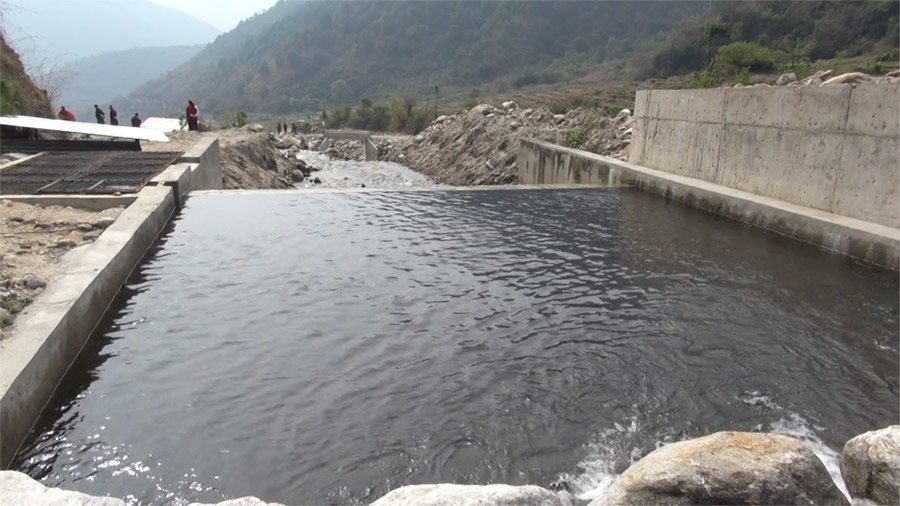
Farmers from two villages in Jamkhar Gewog, Trashi Yangtse, will now be able to maximize the use of all their available arable land. They can do so through the SMART irrigation scheme, which was inaugurated yesterday. Until now, they have been struggling, especially during the paddy transplantation season, due to a shortage of irrigation water.
Farmers from Lhakhang Jab and Nangkhar villages in Jamkhar Gewog have been cultivating paddy using open irrigation channels for more than three decades.
They say this old practice has become inefficient as water is often lost through the open channels due to damage by wild animals.
Additionally, the farmers said that walking for hours through forests and rugged terrain to reach water sources has added to the problem.
Due to the shortage of irrigation water, combined with damage from wild animals, some farmers in Lhakhang Jab and Nangkhar villages have even left their paddy fields fallow.
To alleviate the irrigation water problem, two SMART irrigation channels, one in Jamkhar Drang and the other in Nangkhar villages, were inaugurated in Jamkhar Gewog.
“The open channel would get damaged even with slight rainfall. We have to clear the bushes annually and repair the damages frequently. I think we will not face similar problems in the future. Although we have not started paddy cultivation yet, we can see abundant water supply reaching our fields, and I am glad to see that. I am hopeful that it will remain so during the cultivation period,” said Wangchuk, a farmer.
“During the paddy cultivation season, we had to check the water supply early in the morning. If we did not have water, we had to walk to the water source and then return to the village to seek help if we could not resolve the issue at the source alone. It was difficult, but now that we have received a reliable water supply, I am very thankful and hopeful that it will immensely benefit us,” said Cheten Dorji, another farmer.
The SMART irrigation channel will be monitored using cameras, and the water supply will be managed using Messenger apps on mobile phones.
The Lhakhang Jab irrigation, which spans over three kilometres, was constructed at a cost of over Nu 15 M, while the Nangkhar irrigation, which covers close to four kilometres, was constructed at a cost of over Nu 10 M.
Both projects, the first of its kind in the district, were funded by the Japanese government through the UNDP.
The construction started in July of last year and was completed towards the beginning of this year.”
The irrigation scheme will benefit nearly 200 acres of land belonging to 117 households in Jamkhar Gewog, as well as a few farmers from Yangnyer Gewog in Trashigang.
Sonam Darjay, Trashi Yangtse
Edited by Phub Gyem








